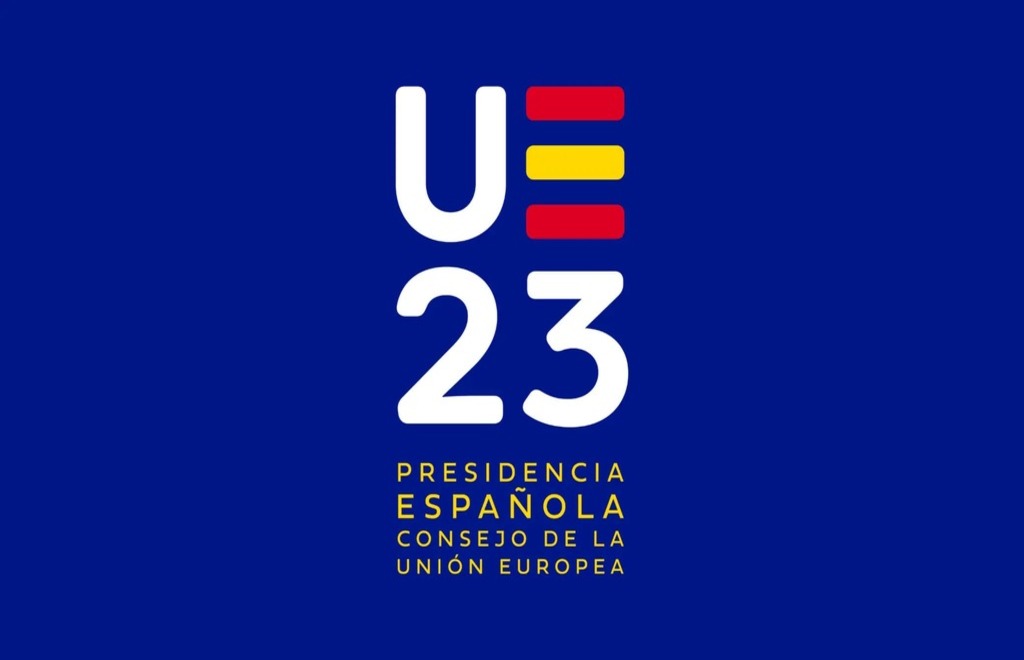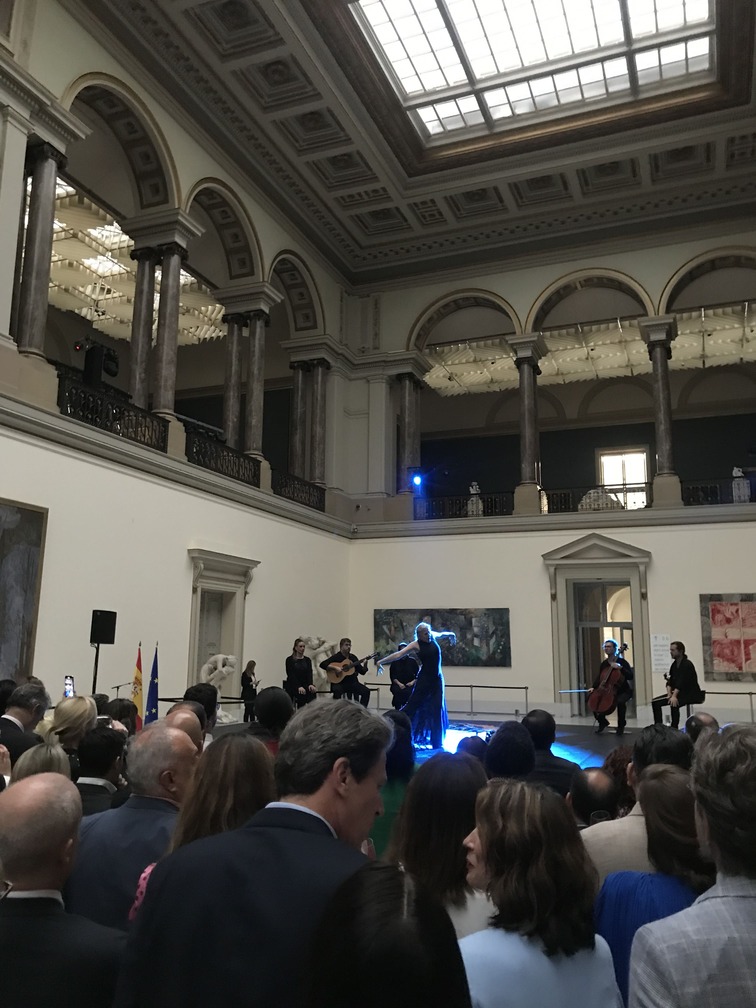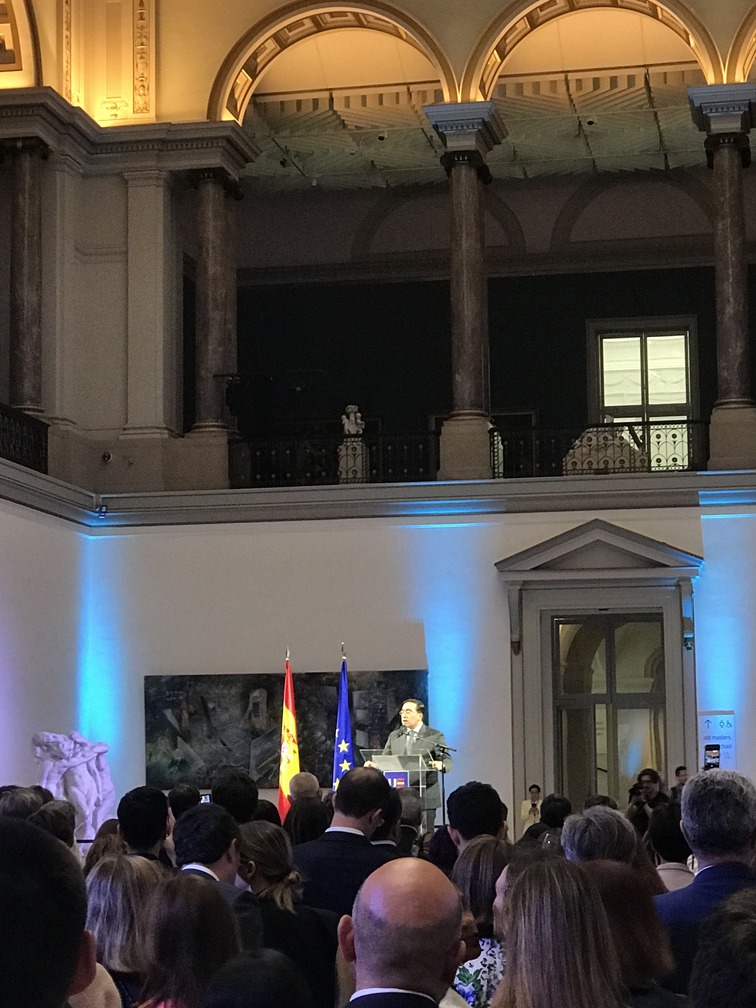What is the Council of the European Union?
The Council of the European Union is the name given to meetings of ministers of the member states. Together with the European Parliament, it has legislative and budgetary as well as coordinating functions. Government ministers from each EU country meet to discuss, adopt and amend legislative measures and to coordinate policies.
The Presidency of the Council is held by individual EU member states for a term of six months (Council Decision 2016/1316). There is no election for the Council Presidency: each state takes its turn. This means that all member states, whether large or small, hold the Council Presidency at some point. Their turn comes every thirteen and a half years.
Since July 2021, the presidencies that have succeeded each other until the Spanish presidency, which began on 1 July 2023, are as follows:
The Lisbon Treaty created the figure of the Trios, informal groups of three Presidencies that coordinate to give continuity to the work over eighteen months. Spain has just inaugurated a trio that will be successively completed by Belgium and Hungary throughout 2024.
Roles of the Council Presidency
.
The Presidency of the Council carries out a number of tasks to promote and supervise the Council’s activities related to European Union legislation. Its primary objective is to ensure the continuity of the Union’s agenda, to maintain order in the legislative process and to promote cooperation between Member States. In order to achieve this, the Presidency must act as an impartial and even-handed intermediary.
The main tasks of the Presidency are as follows:
- Planning and chairing meetings of the Council and meetings of its preparatory bodies. This includes standing committees, such as the Permanent Representatives Committee (COREPER), as well as working groups and committees dealing with specific issues. It is also responsible for organising various formal and informal meetings both in Brussels and in the country holding the rotating Presidency.
- It is also responsible for organising various formal and informal meetings both in Brussels and in the country holding the rotating Presidency.
- Representing the Council in relations with other EU institutions. The Presidency acts as the Council’s representative in its interactions with other EU institutions, especially the Commission and the European Parliament. Its main task is to seek agreement on legislative matters through trilogues, informal negotiation meetings and meetings of the Conciliation Committee.
- The Presidency’s main task is to seek agreement on legislative matters through trilogues, informal negotiation meetings and meetings of the Conciliation Committee.
Spain’s turn in the Presidency
.
Spain will hold the Presidency of the Council of the EU for the fifth time in the second half of 2023, between 1 July and 31 December. Spain has held the six-month rotating Presidency of the Council on four occasions, twice in 1989 and 1995, the third time in 2002, and the last time in 2010.
The Spanish Presidency in 2023 will take place in the final stretch of the European institutional cycle, before the European Parliament elections scheduled for May 2024 and the subsequent appointment of a new Commission. The visit to Madrid by the College of Commissioners of the European Commission on 3 July marked the start of the Spanish Presidency of the Council of the EU. For this period, Spain has identified four priorities for the work under its Presidency of the Council, which are in no particular order of importance:
-
- Reindustrialising the EU and guaranteeing its open strategic autonomy
- Re-industrialising the EU and guaranteeing its open strategic autonomy
.
-
- Advance in the ecological transition and environmental adaptation
- Promote ecological transition and environmental adaptation
.
-
- Promote greater social and economic justice
- Strengthen the EU’s unity
.
-
- Strengthen European unity
.
Inaugural ceremony in Brussels on 4 July 2023
.
The inaugural ceremony in Brussels took place at the Royal Museum of Fine Arts on 4 July (Rue de la Régence, 3, Brussels), and was attended by numerous guests, as well as leading figures from Spanish, European and Belgian politics.
The Spanish Foreign Minister, Mr. José Manuel Albares, had the honour of opening the event, and underlined the importance of the role of Spanish culture, and his support for the recognition of culture as an essential public good in the EU. He also mentioned his support for European unity and integration, for trade in the single market and competitiveness, the strengthening of diplomatic ties with third countries, and the importance of the ecological transition.
The ceremony continued with a performance by María Pagés, Princess of Asturias Award for the Arts 2022, who presented the show “Europa, mi amor“, specifically designed for the opening ceremony, through which she expressed the character of flamenco and the integrative longing of the European project, which was accompanied by a gastronomic experience offered by the Basque Culinary Center and chefs Adrián Mancheño and Marcos Morán.
The team of the European and International Law Department of the law firm Navas & Cusí was present at the opening ceremony, following closely the Spanish and European Union public policies, and the Spanish Presidency of the Council of the European Union, which will last until 2024.





